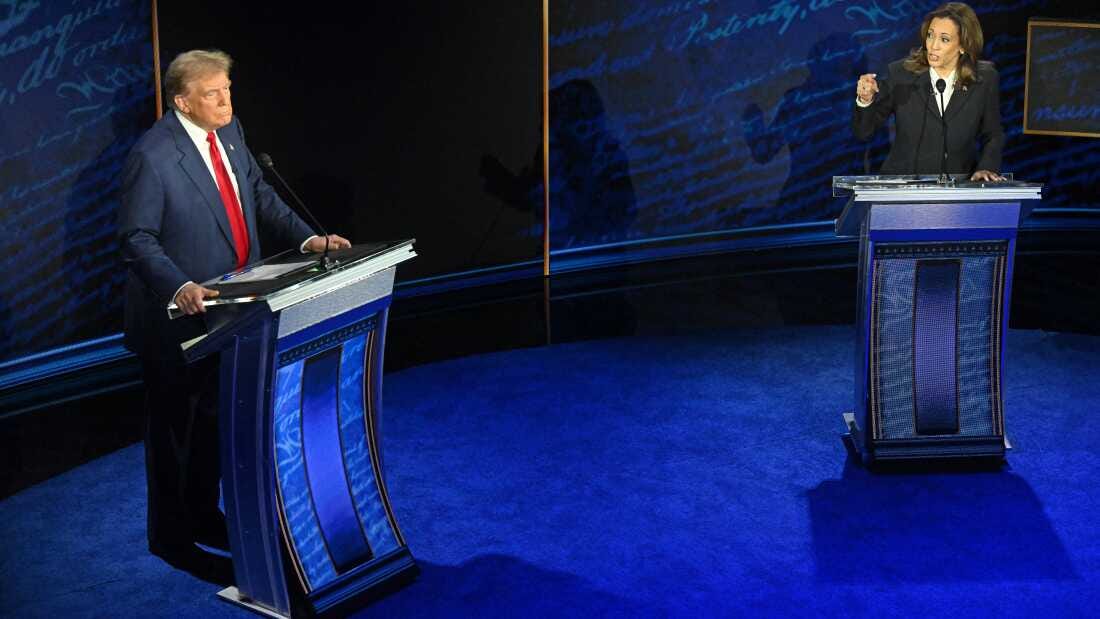Trump's Spectacle, Harris’s Triumph
How Trump’s Theatrics Handed Harris the Victory
By all measures, Kamala Harris’s performance in the debate was effective; her victory was triumphant. The analysis should focus less on her polished delivery and more on the visceral reaction she elicited from Donald Trump, the ever-unpredictable linchpin. Her strategy was as transparent as it was successful: bait the former president into fits of pique, and, predictably, he did not disappoint. From the moment she subtly questioned the size of his crowds, Mr. Trump spiraled into a frenzy of self-aggrandizing, irrational rants—once again proving himself woefully unable to resist even the most obvious provocations. His unraveling was so predictable that conspiracy theorists might be tempted to question whether he was in on the strategy, willfully playing the part of the agitated antagonist.
Mr. Trump’s inability to string together coherent thoughts and his near-obsessive focus on relitigating the 2020 election rendered his debate performance an unmistakable display of political self-destruction. He meandered through nonsensical assertions—from alleging electoral fraud to engaging in bizarre digressions about stolen pets—leaving the impression of a man utterly unmoored from reality. It is regrettable, though unsurprising, that the right, under Mr. Trump’s auspices, has mutated into a movement fueled by delusion and paranoia, led by a figure whose disdain for intellectual rigor and narcissism is palpable.
It’s no secret that politics thrives on rival visions and dynamic, if not combative, exchanges, which are welcomed as part of healthy discourse. Yet, it’s revealing that what sparked Mr. Trump’s ire during the debate was not a defense of the Biden-Harris administration’s domestic policies—policies that have undeniably caused significant distress for many Americans. Instead, what enraged him were Ms. Harris’s remarks about “world leaders laughing at him” and “people leaving his rallies early”—personal affronts that knocked him off course in a moment reminiscent of Ronald Reagan's iconic “There you go again,” exposing his vulnerability to even minor challenges to his image. This moment underscored the motivations of his campaign: the perceived injustice of losing the previous election, narcissistic indulgence, and his insatiable desire for media attention.
Mr. Trump stumbled over what should have been an unassailable point regarding abortion. Rather than seizing upon the clear legislative record—a bill signed by Governor Tim Walz, which expunged language that once protected the unborn even in the final stages of pregnancy—he chose instead to indulge in hyperbole about “executions of babies.” Mr. Trump’s political style possesses this baffling inability to articulate a serious and morally potent argument, which is not surprising given that he is neither serious nor particularly concerned with morality. Confronted with the predictable Democratic rejoinder that such late-term abortions are rare, Mr. Trump could have deftly pivoted, pointing out that, rare or not, the mere existence of such a law is an affront to reason and decency. Yet, once again, he retreated into the familiar refuge of bombast, failing to score points against Ms. Harris, her running-mate, or the administration’s policies.
As the campaign wears on, the question arises: how long will conservatives continue to defend the indefensible? Each time Mr. Trump takes the stage and loses himself in a quagmire of his own creation, he reinforces the image his opponents wish to cast upon him. He, the Republican party, and by extension, conservatism, are portrayed as devoid of intellect, inarticulate on policy, and grounded in baseless conspiracy. Surely, this cannot be the foundation upon which the future of conservatism is built.
This evening serves as a stark reminder of why much of the conservative intelligentsia and media apparatus were misguided in not condemning, and in some cases rationalizing, Mr. Trump's retreat from Ron DeSantis and Nikki Haley earlier this year, as Mr. Trump avoided every GOP primary debate. Those who celebrated this decision—his loyalists—argued that he did not need to debate since he would 'win anyway'—perhaps valid for the primary, but certainly not for the general election. However, recall that these same loyalists likely believe he won the last election if not for the “fraud.”
The troubling undercurrent within conservative media is a reluctance to confront the weaknesses of its standard-bearer, preferring instead to shield him from scrutiny. By evading the debates, Mr. Trump deprived his base of the opportunity to see him defend his “ideas” (or whatever passes for ideas in his political universe) and exposed a more profound insecurity: he may falter when faced with a disciplined, competent adversary like Mr. DeSantis. Mr. DeSantis presents himself as a serious candidate, capable of articulating policy and engaging in erudite sparring—a task that Mr. Trump, whose intellectual grasp at times appears brilliant, and yet can appear so tenuous that it teeters precariously on the precipice of irrelevance, is wholly unequipped to handle.
The anti-intellectual strain of conservatism, one that places personality above principle and spectacle above substance, therefore erred in viewing debates as spectacles to be skipped at one's convenience, rather than crucibles where leaders are made—or unmade. In shielding Mr. Trump from this process, the conservative commentariat denied the Republican electorate the opportunity to witness whether their chosen champion could still withstand the pressures of a serious political contest. The truth of his inability now uncomfortably slips to the surface, exploited by Ms. Harris.
In the debate, Mr. Trump regrettably failed to convey any substantive transformation from his 2020 persona, and neglected to demonstrate the maturation or reflective growth that voters may have hoped for. He did little to persuade swing voters, who are likely to shift toward Ms. Harris. When one reflects upon the razor-thin margins of the 2020 contest, it is crucial to remember that, particularly with the nature of the Electoral College, even the slightest loss of voter confidence can have disproportionate political consequences. For the swing voter, all the histrionics and spectacle of the evening, the substance—or rather, the lack thereof—on display by Mr. Trump allowed Ms. Harris to ascend from the wings of obscurity into the frame of a viable alternative.



